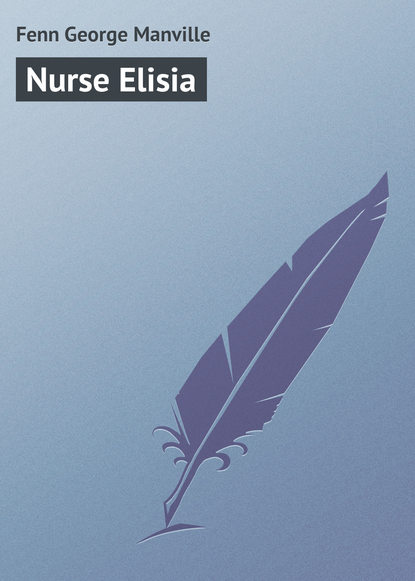По всем вопросам обращайтесь на: info@litportal.ru
(©) 2003-2025.
✖
Nurse Elisia
Настройки чтения
Размер шрифта
Высота строк
Поля
“Be good enough to be silent, sir,” said Neil sharply. “Alison, make two of the men lift one of the light iron gates off its hinges. Isabel, my child, be a woman. Run to the house and make them bring down a mattress to lay upon the gate, and tell Aunt Anne to bring the brandy, some water, and a glass.”
“But, Neil, dear – ”
“Don’t stop to question. I know nothing yet.”
“But hadn’t you better send a groom at once for a doctor?”
“Confound it all, sir!” cried Beck in a low voice, “can’t you see that Mr Elthorne is in a skillful surgeon’s hands?”
Sir Cheltnam gave him an angry look, and turned his back, while Beck, in the matter of fact, cool fashion of a sailor in a time of emergency, bent down over Neil.
“Can I help you?” he said quietly.
“Eh? Thanks, no. I can do nothing till I get him to bed. Poor old dad!” he muttered to himself. “I little thought I was coming for this.”
He had placed the injured man’s head in an easy position, and in his cursory examination found that no limb was broken or joint dislocated; but Elthorne was perfectly insensible, and the young surgeon dreaded the crushing in of ribs and some internal injury.
Meantime the strong, hale, imperious man of a few minutes earlier lay there, breathing painfully, while those about him were too much occupied to notice the soft, dull sound of horse’s hoofs approaching fast.
Neil started as a shadow was thrown across him, and a sharp, metallic voice cried:
“Hallo! What’s the matter? Anyone hurt?”
“Yes; a bad fall,” said Neil coldly, as his eyes met those of the speaker, the elder of the two Lydons.
“Well, I couldn’t help it,” said the girl rather resentfully. “No fault of mine.”
“Poor old guardy!” cried her sister. “Don’t look like a ride to-day.”
“Not much,” said Saxa. “Did the horse throw him?”
“Fell with him,” said Sir Cheltnam.
“Looked it,” cried Saxa. “I told Dan here that I didn’t like the looks of the mount, but it was no use to tell the old man. He always would have his own way, eh, Dan?”
“Always,” assented her sister.
“Burwood,” cried Neil impatiently, “will you give me your help?”
“Certainly. What shall I do?”
“Take these ladies away somewhere; their talking disturbs the patient.”
“Well, I’m sure!” cried Saxa with a laugh full of annoyance. “But we will not trouble Sir Cheltnam; we know our way back.”
“Here’s someone else coming who will be more civil, perhaps,” said Dana to herself, as Isabel, followed by half the household, came hurrying back.
Alison was returning too, with some of the stablemen and gardeners bearing a light iron gate and the mattress, with the result that the sufferer was borne carefully back to the house.
“I say, Elthorne, though,” said Sir Cheltnam, as they followed behind; “no offence to your brother, who is, I dare say, clever enough, – I forgot that he was a doctor, – hadn’t you better send to the town for the best man they’ve got? I’m afraid your old gov’nor has come off badly.”
“Neil will know,” replied Alison. “He will do what is right.”
“Oh, very well; I only suggested; but I say, hadn’t you better make a bit of a clearance? So many people about must be bad for the patient.”
Alison looked at him curiously, but he said nothing, though the idea did occur to him that it would be satisfactory if his friend were to ride off in company with the Misses Lydon.
“How is he, Neil? What do you think of him?” said Alison, after quietly watching his brother for some time.
“Bad,” said Neil laconically. “I can say nothing yet for certain.”
“Will he die?”
“Please God, no; but the symptoms are serious.”
“Bones broken?”
“No; injury to the spine, I fear. I must have help and further advice.”
“I’ll send on to the town at once for Morrison.”
“No,” said Neil quietly. “This is not a case for a general practitioner. Get me a telegraph form, and have the message sent on at once.”
“Yes,” said Alison eagerly; “but tell me what you are going to do.”
“Send for Sir Denton Hayle.”
“Will he come?”
“If I ask him – yes.”
The message was written and sent off. The Lydons, after waiting till after noon, had shaken hands with the brothers, and said they were very sorry, and then accepted Sir Cheltnam’s escort home.
Neil, who had left his father’s side for a few minutes to say good-bye, heaved a sigh and turned to go back.
“They don’t seem very much broken-hearted about the poor old dad, Neil,” said Alison.
“No,” cried his brother, flashing out angrily. “I wonder sometimes whether – no, no, we can’t discuss that now, with him lying like that,” he added hastily, and he went back into the house to find that Beck still lingered.
Neil looked at him reproachfully and the young sailor caught his arm.
“I have not gone,” he said. “I’m staying in case I can be of any use.”
“Thanks,” said Neil shortly. Then a thought struck him, and he turned back. “Did you speak to my father?” he said.
Beck nodded.
“What did he say?”











